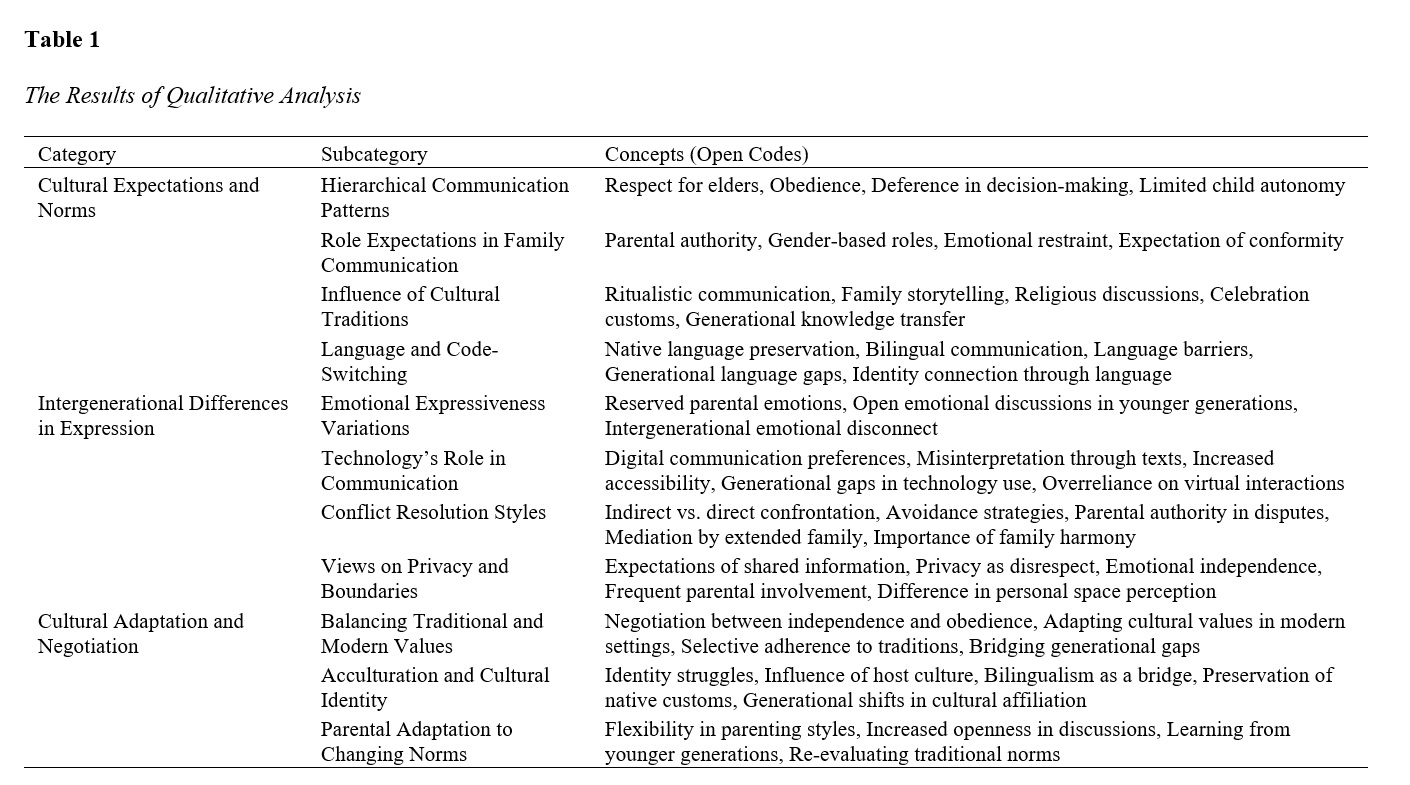Exploring the Cultural Factors Influencing Parent-Child Communication in Intergenerational Families
Keywords:
intergenerational communication, cultural expectations, family dynamics, generational differences, parent-child interaction, cultural adaptationAbstract
Objective: This study aims to explore the cultural factors influencing parent-child communication in intergenerational families.
Methods and Materials: This qualitative study employed a phenomenological research design, using semi-structured interviews with 29 participants recruited through online platforms. Theoretical saturation was reached to ensure data adequacy. Interviews were transcribed and analyzed using NVivo software, following an inductive thematic analysis approach. The analysis identified key themes related to cultural expectations, intergenerational differences in expression, and cultural adaptation.
Findings: The results revealed that hierarchical communication patterns, role expectations, and linguistic differences significantly influenced parent-child interactions in intergenerational families. Many participants described communication structures rooted in cultural norms that emphasized obedience, emotional restraint, and parental authority. Generational differences emerged in emotional expressiveness and conflict resolution, with younger family members favoring open discussions, while older generations maintained indirect or reserved communication styles. The role of technology was also significant, as digital communication was perceived as convenient by younger generations but as impersonal by older family members. Furthermore, families navigated cultural adaptation by balancing traditional values with modern perspectives, with some experiencing tension in integrating both approaches.
Conclusion: Cultural factors play a crucial role in shaping intergenerational family communication, influencing language use, emotional expression, and conflict resolution. While cultural traditions reinforce family cohesion, they may also limit open dialogue between parents and children. Generational shifts in communication styles and the increasing use of digital communication necessitate adaptive strategies for maintaining effective intergenerational relationships.
Downloads

Downloads
Additional Files
Published
Submitted
Revised
Accepted
Issue
Section
License
Copyright (c) 2025 Wang Lai (Corresponding Author); Jingjing Ying (Author)

This work is licensed under a Creative Commons Attribution-NonCommercial 4.0 International License.






